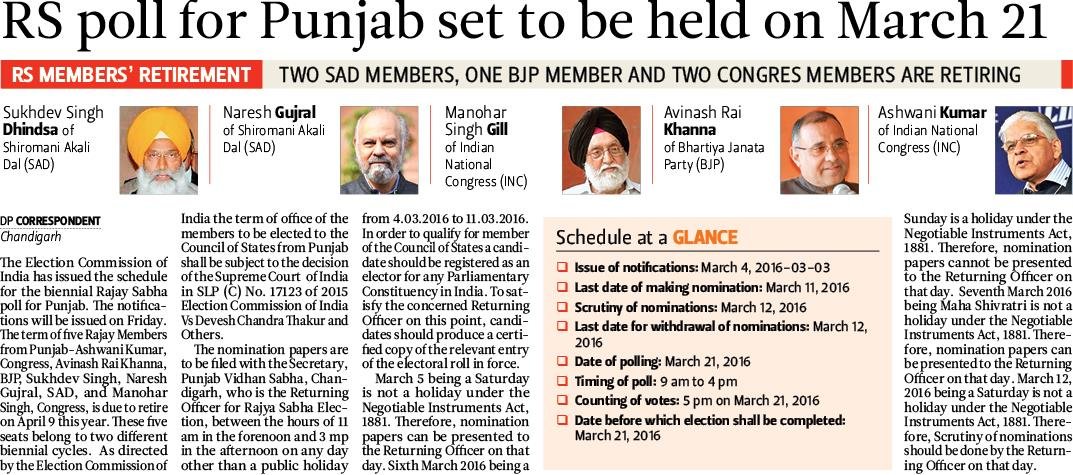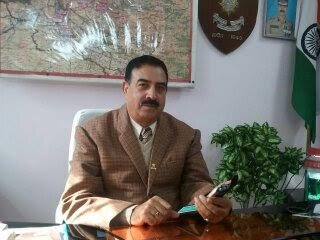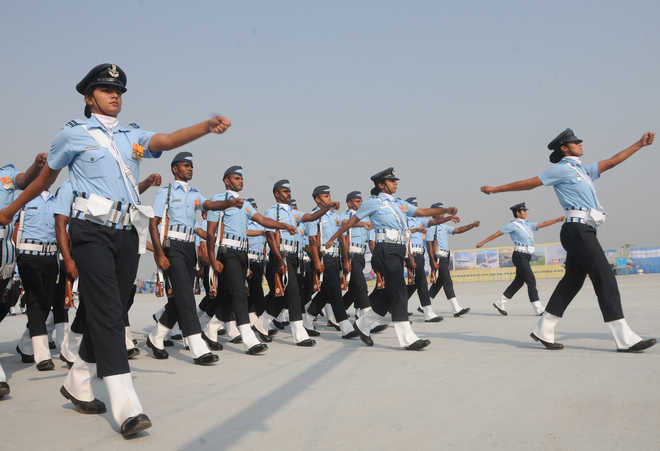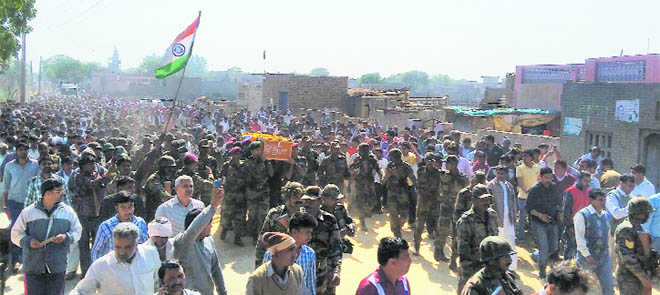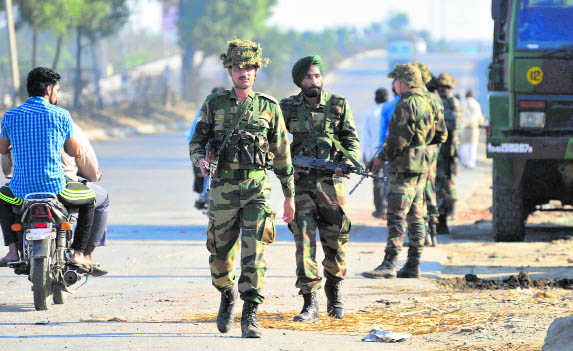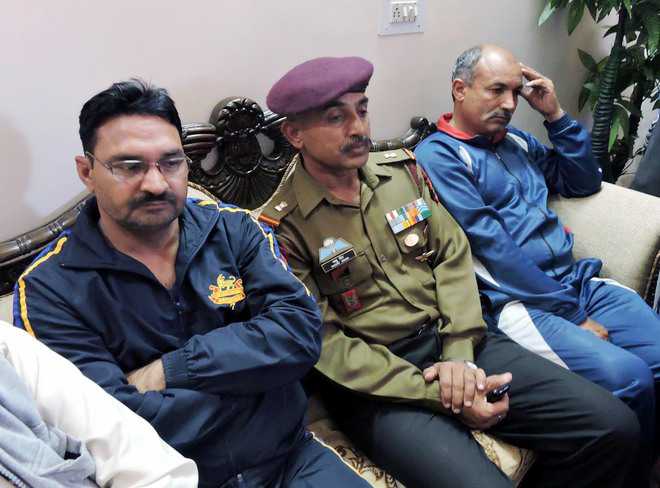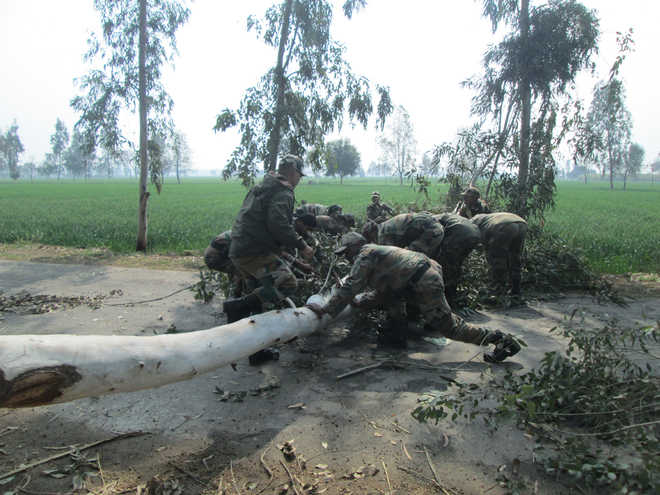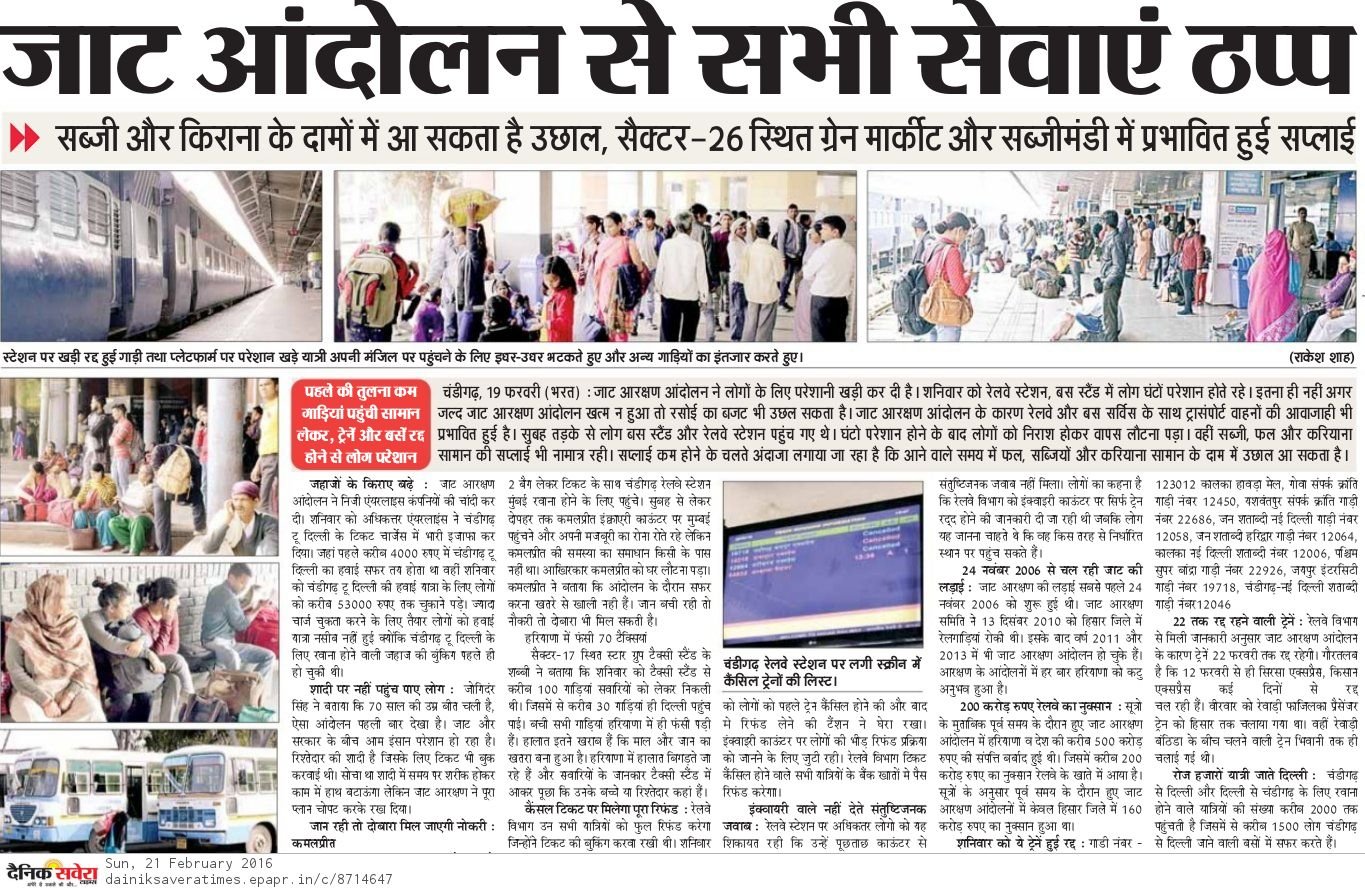Our Correspondent,Hamirpur, March 4
Ex-servicemen from Sujanpur organised a meeting at the residence of Rajinder Rana, Vice-Chairman of the Disaster Management Authority, yesterday.It was learnt that over 100 ex-servicemen had decided to join a protest being organised at Dharmasala if the match venue between India and Pakistan was not changed.Rajinder Rana said a delegation of one hundred ex-servicemen came to meet him. They demanded the cancellation of India-Pakistan match to be held on March 19.Sources said the ex-servicemen had urged Rana to convey their feelings to the Chief Minister.Rana said HPCA president Anurag Thakur should also reconsider the decision and change the venue.He said it was surprising that the BCCI and HPCA were not considering the sentiments of soldiers and their family members.
Arun meets martyr’s kin, seeks support for match
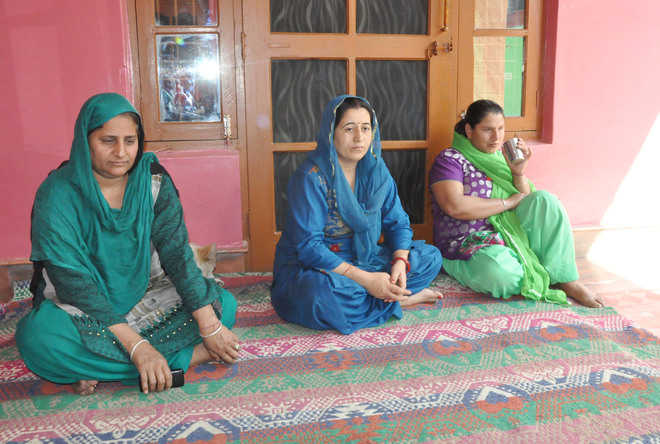
Family members of martyr Sanjeevan Rana at his home in Siyunh village
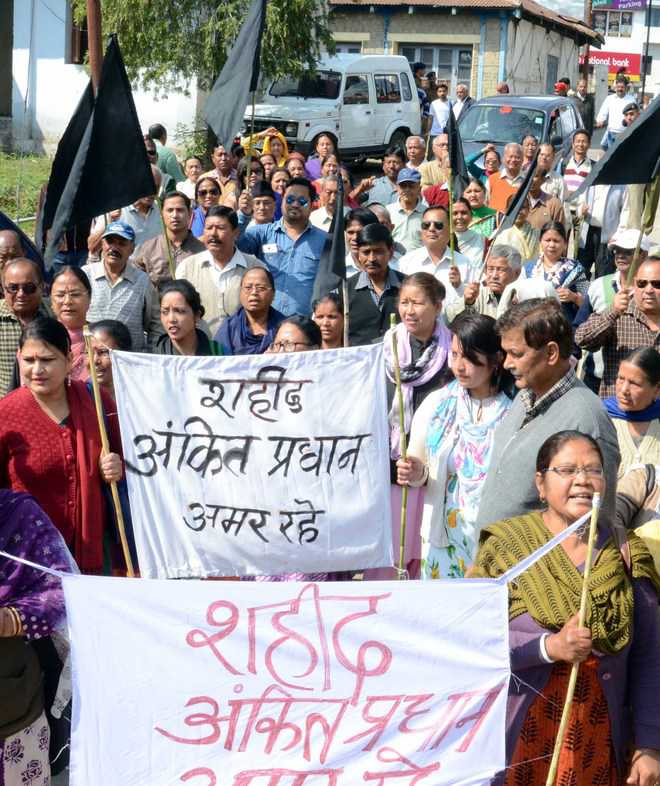
Lalit Mohan,Tribune News Service,Dharamsala, March 4
Arun Dhumal, younger brother of HPCA president and BCCI honorary secretary Anurag Thakur today met the family of martyr, Sanjeevan Rana. He met the wife of Sanjeevan Rana, Pinki Rana at her residence near Shahpur.The sources here, however, said the visit failed to cut ice with the family of the martyr over the issue of hosting the India-Pakistan cricket match at Dharamsala on March 19.When The Tribune team contacted Pinki Rana she said that Arun Dhumal did not talk directly about the match and maintained that he had come to convey his condolences. He, however, tried to explain that the dates of the India-Pakistan match had been finalized in advance and the venue cannot be changed now.“We are against the holding of match at Dharamsala. I have lost my husband who laid down his life for the country fighting Pak-sponsored terrorists just two months ago. I cannot tolerate Pakistan Zindabad slogans in the vicinity of house in such conditions,” Pinki Rana said.Pinki Rana further said, “Though we are against the match, I do not think the venue would be shifted from Dharamsala. Nobody values our opinion. Though the Chief Minister has said that the match should not be played at Dharamsala, he will not be able to stop it.”“Pakistan had never shown any eagerness to talk to India. It is India leaders who go after Pakistan seeking holding of talks. Whenever, Indian leaders take the initiate with Pakistan there is attack by terrorists and our soldiers have to lay down their lives to save the country”, she said.Arun Dhumal’s visit to the family is seen as a late effort to placate the hurt feeling of ex-servicemen.Members of strong Gorkha community also carried out a march in Dharamsala today to protest against the hosting of India-Pakistan match at Dharamsala. Gorkha community, most of whom are ex-servicemen, said that feelings of the families of martyrs should be respected and the match should not be held at Dharamsala.The sources here said the HPCA was resorting to intense lobbying to soften the opposition stand on the match. Senior officials of cricket body and their supporters have met Congress leaders who have announced their support for the agitation against the match.During his recent meeting with Anurag Thakur, the Chief Minister had clearly stated that though he was not against the match, the state would not use force against the families of martyrs protesting against the match.
Match an insult to martyrs’ families: Youth Cong chief
Tribune News Service,Shimla, March 4
The Youth Congress today joined the chorus against the match as its state president Vikramaditya Singh said the match was an insult to the families of the martyrs.“The Youth Congress is against any engagement with Pakistan till the time the country stops supporting terror activities. We will oppose the match,” said Vikramaditya who also the son of Chief Minister Virbhadra Singh.He termed the meeting of HPCA president and BJP MP Anurag Thakur with Virbhadra Singh as a mere political stunt and requested the government to continue to oppose the match as a mark of respect to the martyrs and their families.“Holding of the match is purely a commercial activity and it will not have any impact on diplomatic ties between the two countries as is being projected by the BJP leaders,” he said.He added that if the match was not cancelled by the HPCA, his party, along with the families of the martyrs would take out a protest march from their houses to the Dharamsala stadium.He said the HP Youth Congress was against any kind of sporting engagement with Pakistan.“As per our resolution adopted during the HP Youth Congress Executive Committee meeting, we will continue to oppose the match,” he said.He demanded that the match should be cancelled, keeping in view the sentiments and feelings of the families of the martyred soldiers and the anger of the general public.

